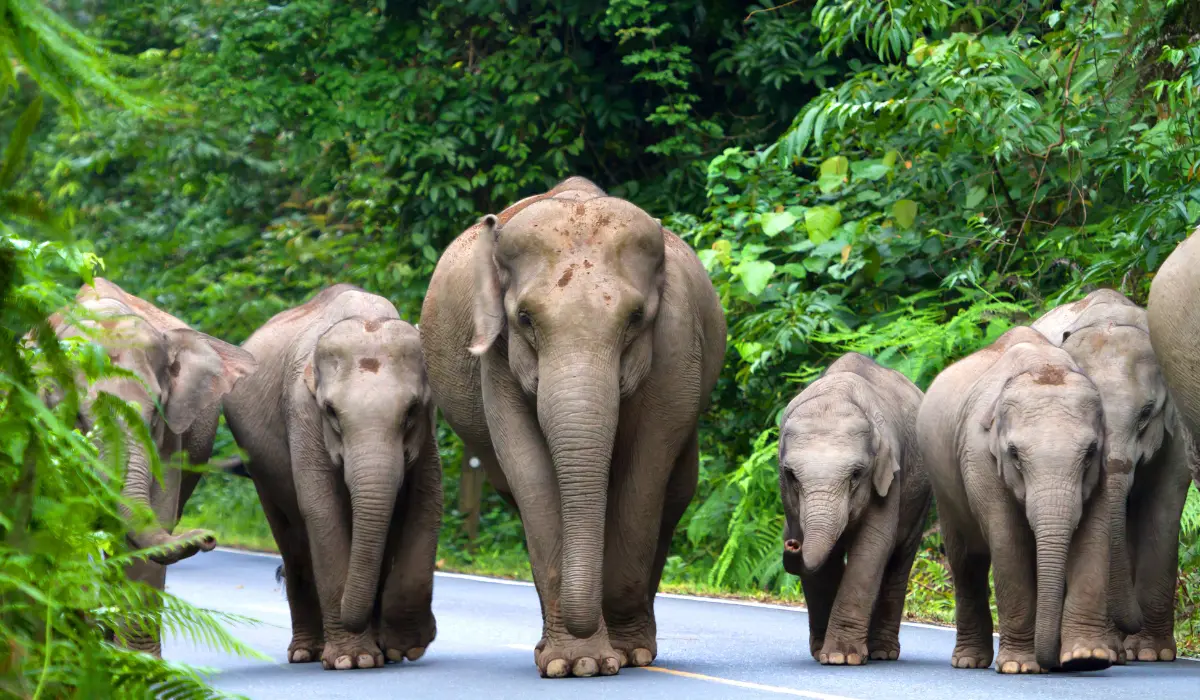Make sure your adventures don’t support suffering
Animals might not be the first thing that come to mind when you think about your next trip, but spend a minute reflecting on your travel wish-list and you might be surprised at how often they feature. From trips to zoos and aquariums, to once-in-a-lifetime experiences such as safaris, camel rides across the desert and cuddles with koalas, animals are responsible for some of our most cherished travel moments. According to World Animal Protection (WAP), a US-based animal welfare non-profit, some estimate that wildlife tourist attractions account for 20-40% of global tourism.

But many of the animals involved in making these wonderful memories have a much less positive time. Animals at these attractions often experience harm, distress and pain. They may be separated from their mothers at an early age and subjected to cruel conditions and training that causes physiological and psychological damage. According to Oxford University’s Wildlife Conservation Research Unit, up to 550,000 wild animals are suffering for tourist entertainment worldwide.
Making good choices
It’s not always easy to tell how animals are treated ‘behind the scenes’ at wildlife attractions, and if tickets are booked through a reputable provider, you’d be forgiven for assuming such activities are animal-friendly. As a new report from WAP shows, however, that’s not always the case. ‘Tracking the Travel Industry: Which travel companies are fueling wildlife exploitation?’ investigated 10 major travel companies and found that the industry is not doing enough to tackle the problems of the captive wildlife industry, and that “animal exploitation is often left out of the picture when travel companies, travel associations, and travel guides discuss the importance of committing to responsible operations”.

To tackle the global challenge of animal exploitation, ethy has introduced its ‘Cruelty Free Experiences’ label. ethy-certified travel companies with this label, such as sustainable and ethical small group tour operator Intrepid, have made a demonstrable commitment to animal welfare throughout all their operations. As WAP says, travel companies play a crucial role in creating and changing the supply and demand for captive wildlife experiences, and those with the Cruelty Free Experiences label are helping to push change in the right direction.
Turning the tide on animal exploitation
The good news is that tourists are becoming increasingly reluctant to support activities that are deemed unethical, and there’s a growing interest in animal welfare and demand for ethical attractions. As WAP’s report shows, 79% of travellers believe tour operators should not sell activities that cause animal suffering, while the same number (79%) said they would pay more for an activity involving animals if they knew the animals did not suffer.
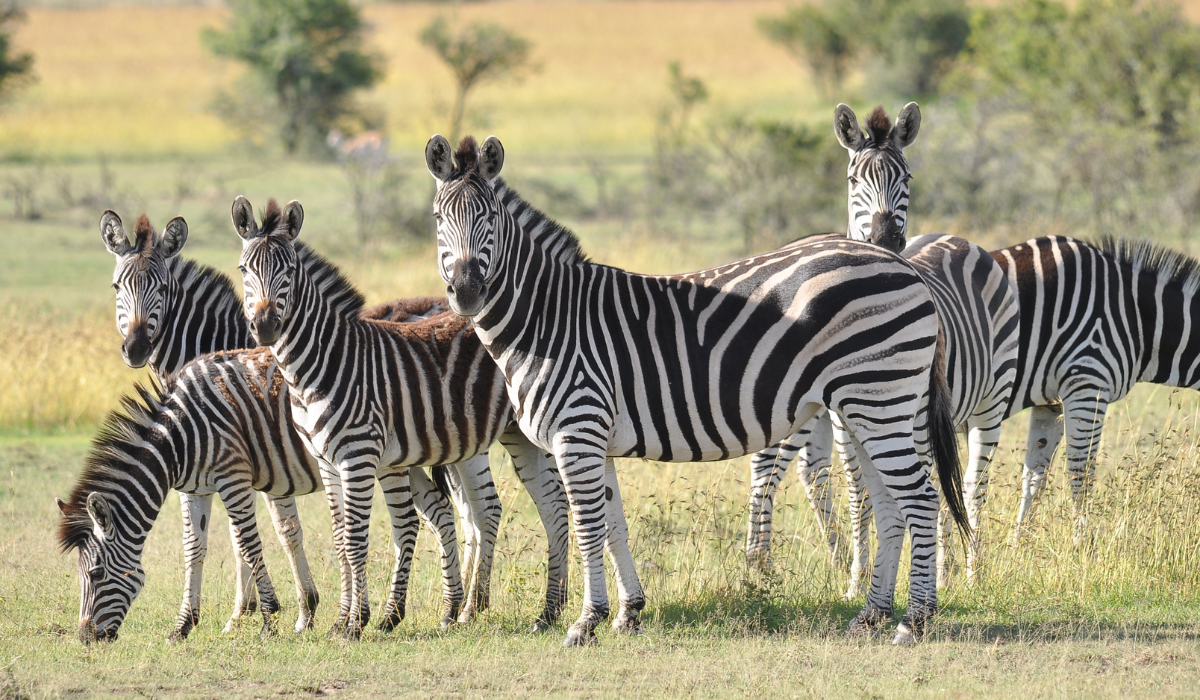
So, what can you do to make a difference? The biggest impact you can make is to avoid exploitative and cruel animal experiences in the first place. But as we’ve mentioned, it’s not always easy to know what counts, so here are our top tips to being an animal-friendly tourist.
1. Book with a reputable company
The easiest way to make sure you’re not indirectly contributing to animal exploitation is to book travel and activities through a company that prioritises animal welfare.
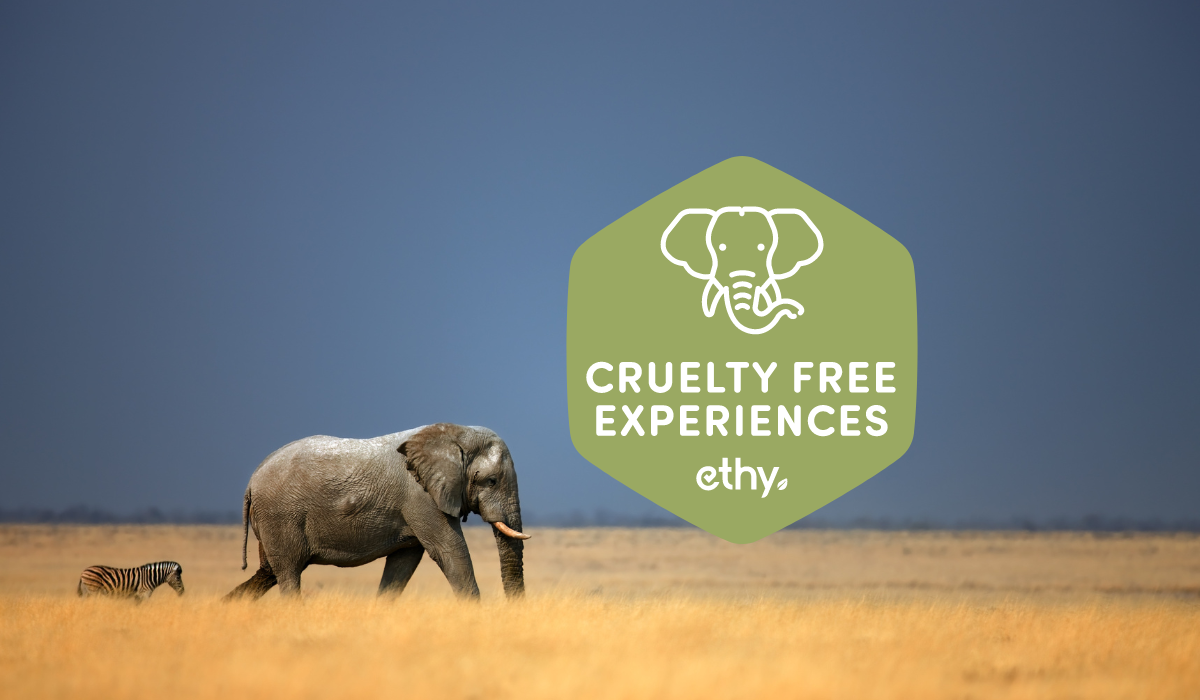
Both Intrepid Travel and Explore have the ethy Cruelty Free Experiences label, which means they’ve put animal wellbeing at the top of their agenda.
2. Research local issues
Before you travel, check WAP’s Animal Protection Index, which scores every country on its legislation and policy commitments to protecting animals. This will give you a good idea of the key animal welfare issues at your destination, and this information can help you make more informed choices about your activities.
For example, Thailand has a very poor record for the exploitation of elephants, which are often used for rides and performances. If you do want to see elephants while you’re in Thailand, research ethical ways of doing so, such as visiting sanctuaries and wild observation points.
3. Keep it hands-free
Don’t ride on elephants, participate in lion walking experiences or pay for pictures with chained or otherwise restrained animals. You don’t need to touch these amazing creatures to appreciate their awesome beauty.

4. Avoid cruel ‘cultural’ attractions
Any attraction that subjects animals to cruelty for entertainment purposes, such as circuses, dancing bears, dog or cockerel fights, or bull fighting, can never be ethical, no matter what operators might say. Many of these activities are often considered part of local culture, but culture is never an excuse for cruelty.
5. Be selective about zoos
Ideally, you’ll view wildlife where it belongs… in the wild! However, some conservation zoos run important breeding and protection programmes designed to shield and care for species with the view to releasing these animals or their offspring into the wild – and they often depend on ethical tourism to support their efforts.
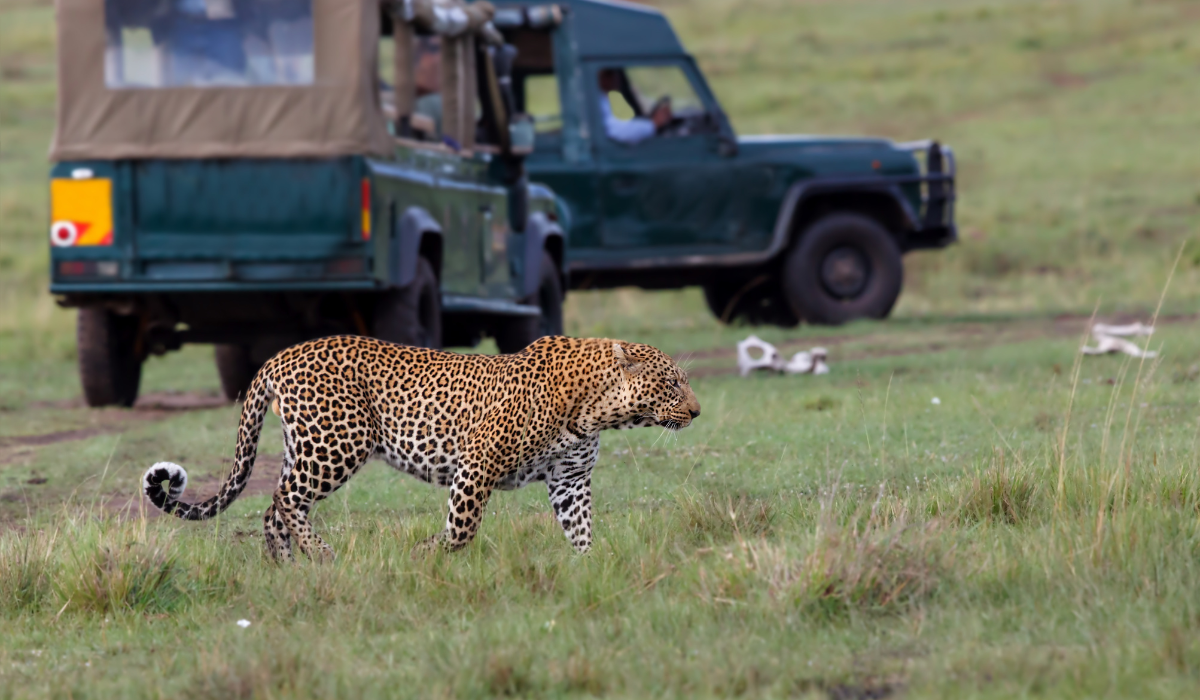
But not all zoos are created equal, and many keep their animals in poor conditions with their basic needs denied. Meanwhile, some species simply cannot survive in captivity, such as dolphins and whales.
Thoroughly research any zoo you intend to visit and if it doesn’t conform to high welfare standards, give it a miss.
6. Mind the menu
Many restaurants in tourist-heavy areas try to capitalise on the ‘when in Rome’ attitude of visitors by selling supposedly ‘authentic’ dishes and cuisines. But these often include endangered animals or involve inhumane production methods. Avoid! Instead do your research ahead of time and opt for local fruits and vegetables or other dishes you know are genuinely local and don't harm any animals.
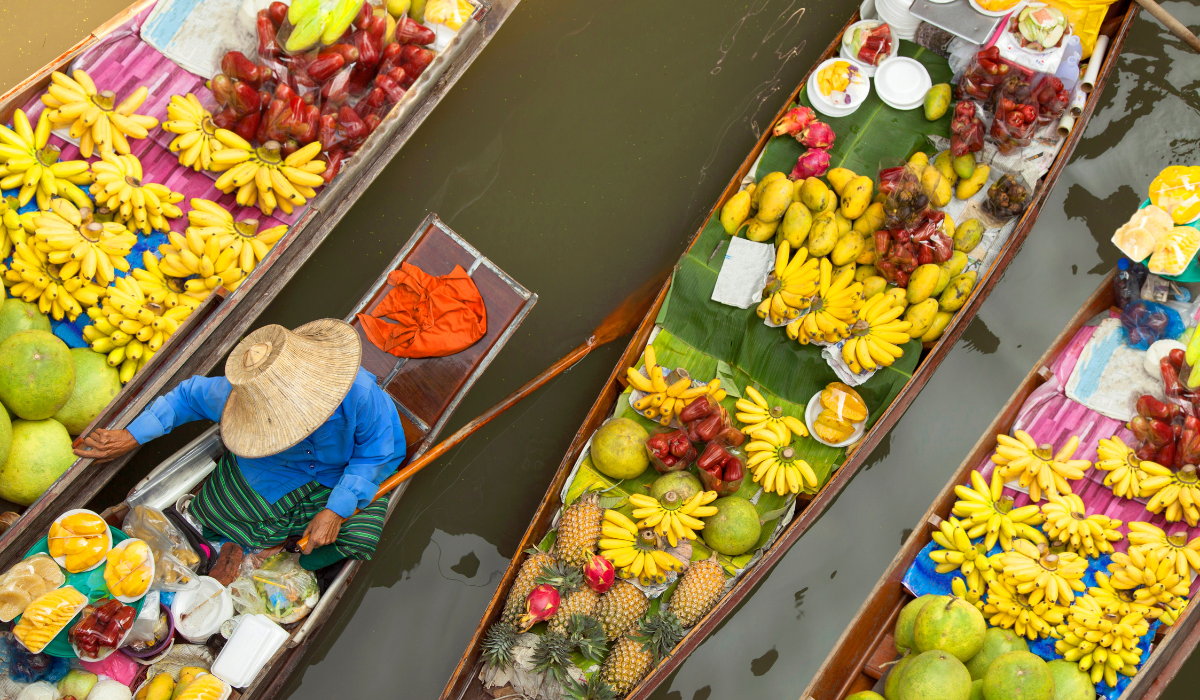
7. Avoid souvenirs made from animals
You’ll find tacky souvenirs in abundance wherever you go, but take care to avoid anything made from fur, ivory, shells, seahorses, teeth, rhino horn or turtle shells. These materials are often obtained via illegal poaching.
Why not decide to take photos instead as your special something from the trip, this way you save money and carbon emissions, help to protect animals and have a great memory from the trip!

8. Be a good global citizen
Animal exploitation in the tourism industry can only be wiped out if demand for it disappears.
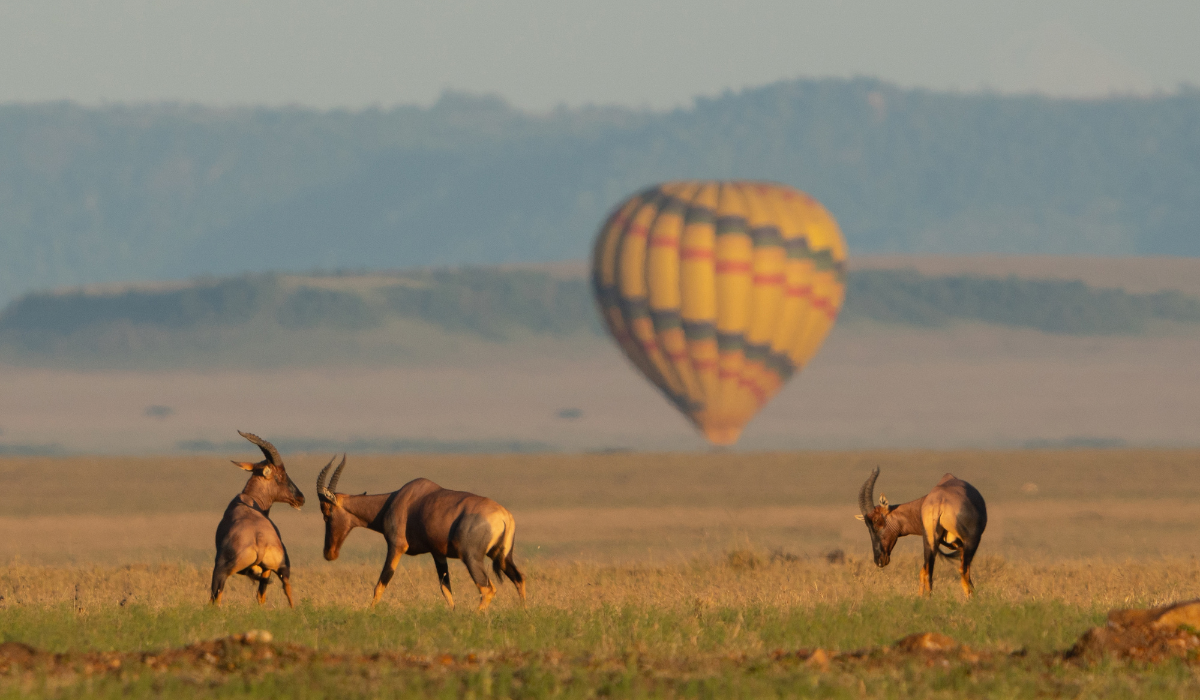
As well as making good choices yourself, you can help others make animal-friendly travel decisions by spreading awareness and leaving positive reviews for companies and attractions doing things right, and negative ones for those that are contributing to the problem.
You may also like...
Sign up for our newsletter
Get the latest sustainability news delivered directly to your inbox.
